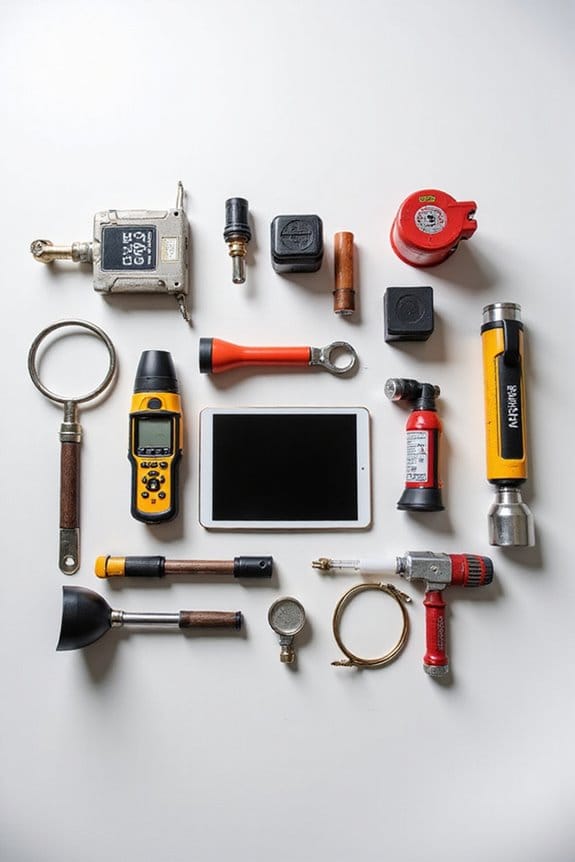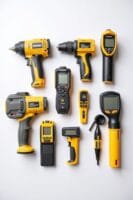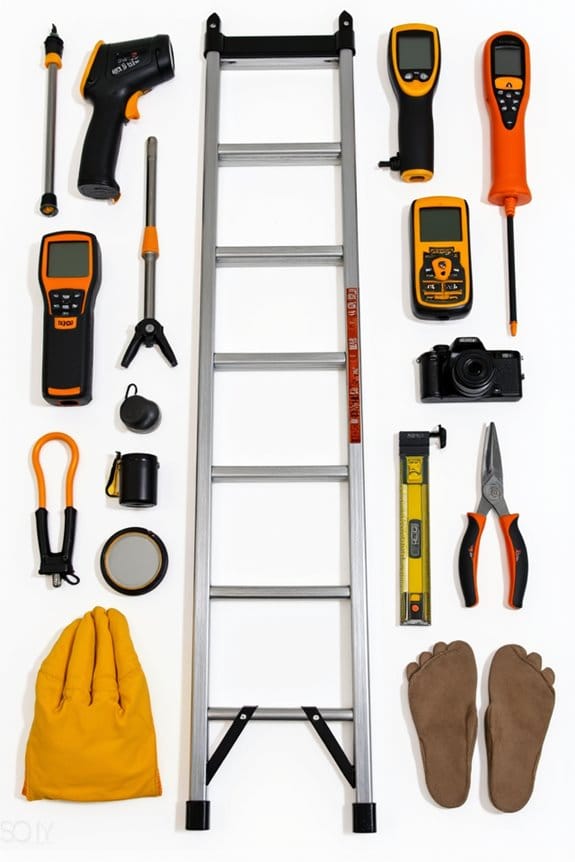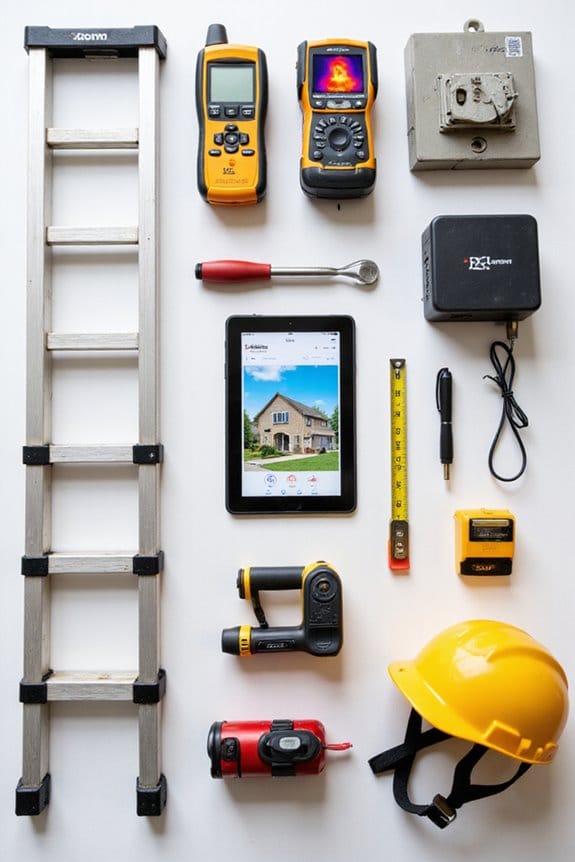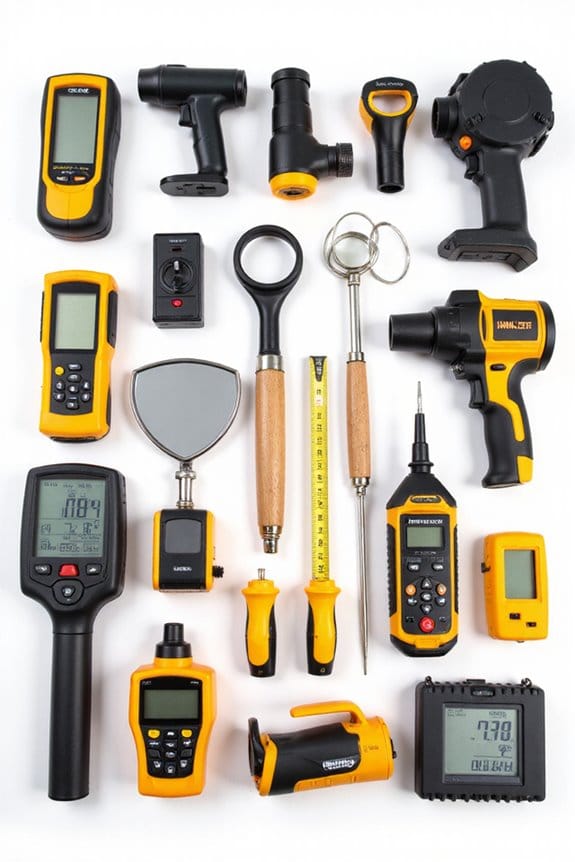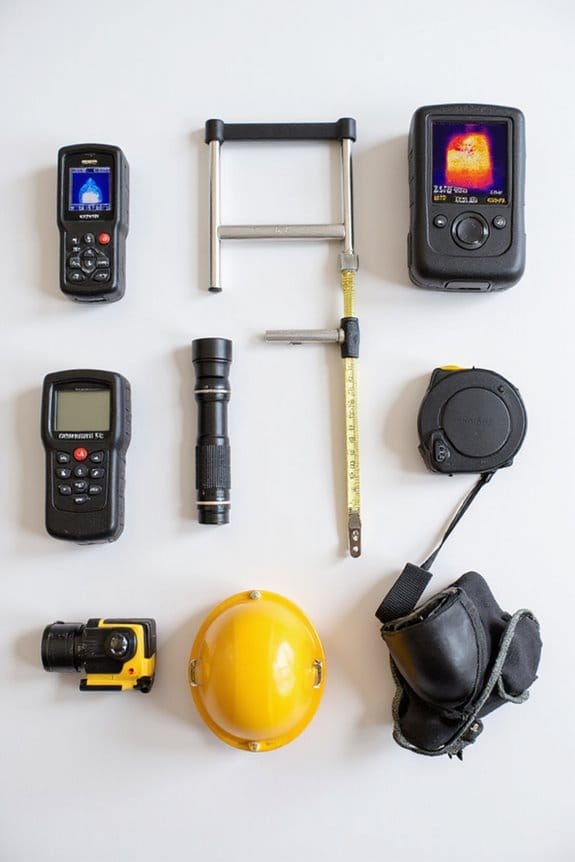To be a good home inspector, you’ll need a few key credentials. First, you should have a high school diploma or GED. Then, complete 140 to 200 hours of pre-license education covering inspection principles. Practical experience is essential, so aim for at least 40 hours of supervised inspections. Don’t forget to pass the New York State Home Inspection Exam or NHIE for your license. Plus, some ongoing education keeps you sharp and connected. Stick around—there’s more to discover!
Key Takeaways
- A high school diploma or GED is the minimum educational requirement for home inspectors.
- Completion of 140 to 200 hours of pre-license education is essential for obtaining a license.
- Practical experience through supervised inspections and mentorship is crucial for skill development.
- Passing the New York State Home Inspection Exam or NHIE is mandatory for licensure.
- Valid errors and omissions insurance is necessary to protect against liability in inspections.
Education Requirements for Home Inspectors
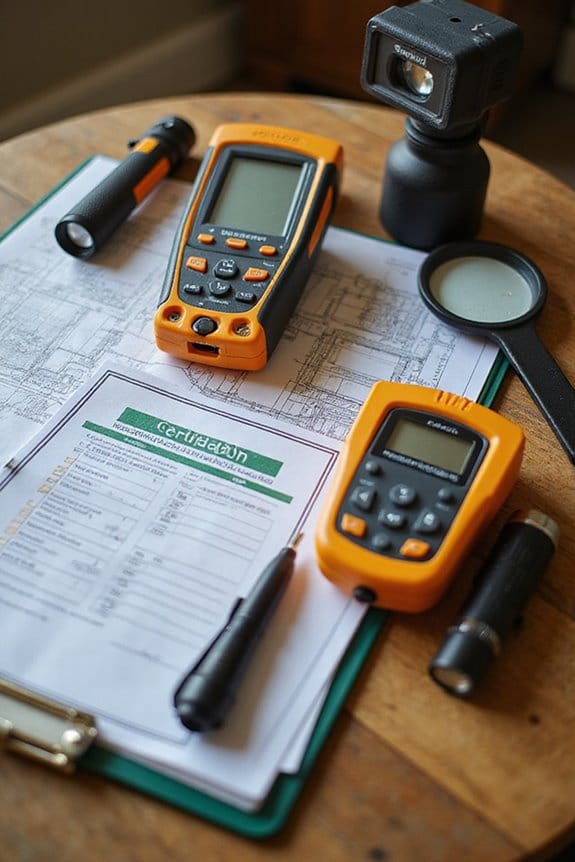
When it comes to becoming a home inspector, there are a few essential education requirements you need to keep in mind. First, you’ll need a high school diploma or GED—this is your starting point. Next, most states require about 140 to 200 hours of pre-license education. This can include online courses, which are super convenient!
Here’s a quick breakdown:
- High School Diploma/GED: Basic requirement everywhere.
- Pre-License Education: 140-200 hours of accredited programs covering inspection principles, laws, and building codes.
Practical Experience and Supervised Inspections
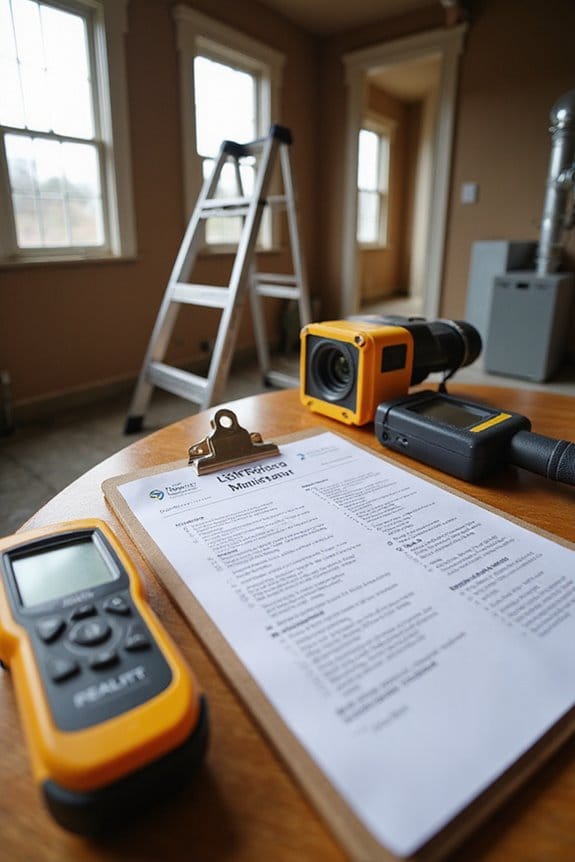
While diving into the world of home inspections might seem intimidating, I can assure you that practical experience and supervised inspections are where the magic happens. Here’s why they matter:
- Hands-On Learning: Supervised inspections let you apply classroom knowledge in real-world settings, enhancing your skills.
- Mentorship: Working alongside experienced inspectors gives you immediate feedback, boosting your confidence and skillset.
- Skill Development: You’ll learn to spot defects and use inspection tools effectively, which is vital for future success.
- Variety Exposure: Engaging with different property types during supervised inspections guarantees you’re ready for anything that comes your way.
Licensing Exams and Certifications
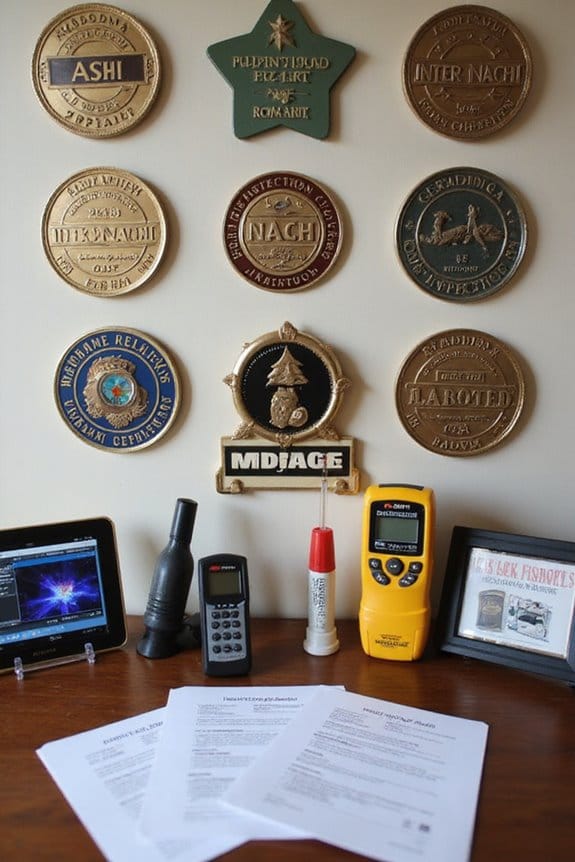
Getting your home inspector license is a big step—one that involves a bit of legwork and a few tests, but trust me, it’s all worth it. Here’s the scoop on licensing exams and certifications:
- Educational Course: You need at least 140 hours of approved training, including 40 hours of field inspections.
- Exam Passing: You’ll face either the New York State Home Inspection Exam or the NHIE. Passing these shows you know your stuff!
- Certification Benefits: Being certified boosts your credibility and often helps with liability coverage.
Background and Eligibility Criteria
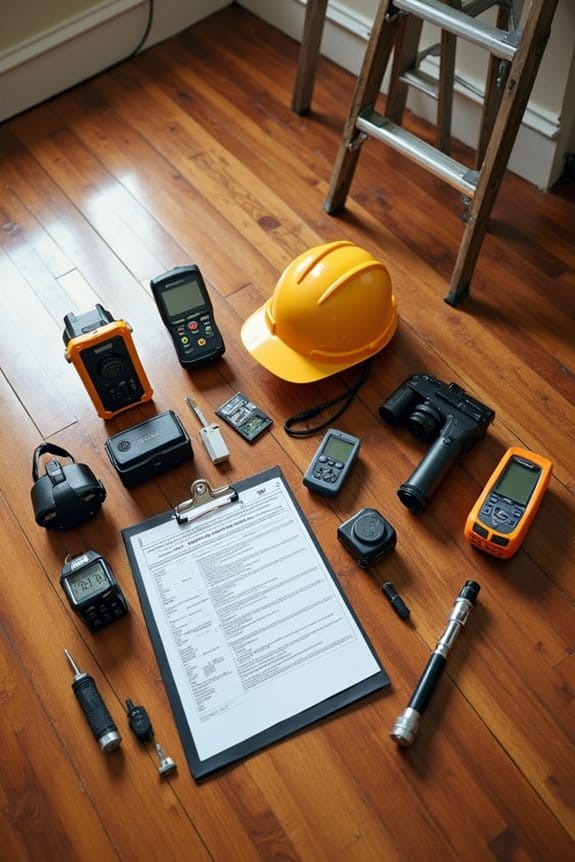
After you’ve tackled your licensing exams and earned your certifications, it’s time to look into the background and eligibility criteria for becoming a home inspector. Here’s what you need to know:
- Education: Most states require a high school diploma or GED and 40 to 80 hours of approved coursework.
- Experience: You’ll need supervised inspections—think of them as your training wheels—often 75 to 200 inspections before full licensure.
- Age: You must be at least 18 years old.
- Legal Eligibility: Background checks are common to guarantee you have a clean record, as certain legal standards must be met.
Reporting and Insurance Requirements
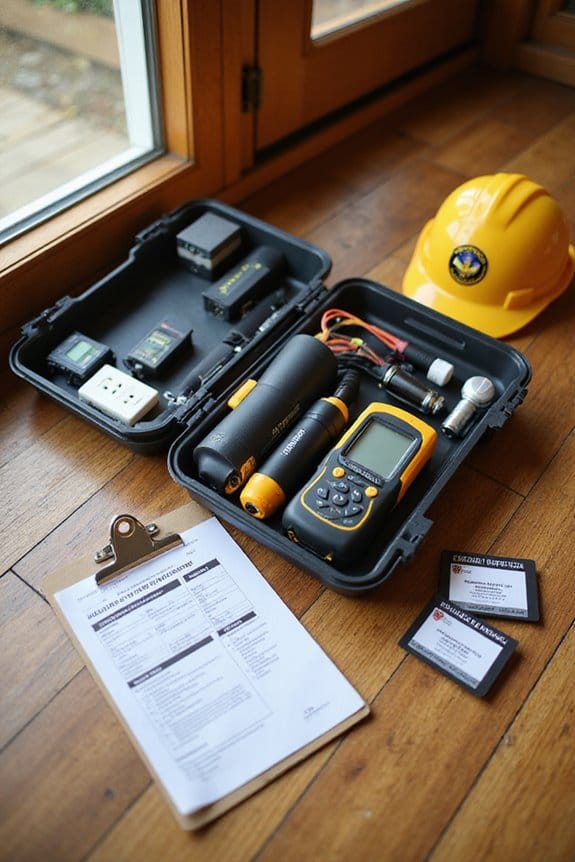
When it comes to being a home inspector, understanding the reporting and insurance requirements is essential for your success and credibility. Here’s what you need to know:
- Reporting Standards: Your reports must detail all systems inspected and explain any that weren’t. If you find defects, state their significance clearly.
- Recommendations: Always suggest what to do next—repair, replace, or get a pro to evaluate further. Just don’t specify how to fix things or the costs involved; that’s not your job!
- Insurance Compliance: Make sure you’ve got valid errors and omissions insurance. It protects both you and your clients from potential liability claims. Plus, notify the Home Inspection Advisory Committee before changing your coverage.
Following these guidelines will keep you on the right track!
Continuing Education Obligations
While it might seem like a hassle, continuing education is essential for home inspectors looking to stay sharp and competitive in the field. Here’s why:
- State Requirements: Each state has its own rules. For example, North Carolina requires annual CE by September 10, while Florida mandates 14 hours every two years.
- Course Content: You’ll need to focus on specific topics like wind mitigation in Florida or home inspection legislation in Connecticut.
- Delivery Options: Thanks to continuing education trends, online learning options are widely available. States like Maryland allow up to 30% of hours to be earned through virtual sessions.
Staying updated isn’t just about compliance; it keeps you informed and ready to tackle any inspection challenge that comes your way!
Reciprocity and Multi-State Practice
Continuing education is just one piece of the puzzle for home inspectors, especially when it comes to working across state lines. Let’s explore reciprocity agreements and multi-state compliance.
- Understanding Reciprocity: Some states allow inspectors to transfer their licenses without retesting, making life easier for us.
- Stay Updated: Reciprocity agreements can change, so always check with regulatory agencies to stay compliant.
- Know the States: Not every state plays nice. For instance, Florida has zero reciprocity, while others may require additional fees or training.
- Legal Risks: Operating without the proper license can lead to big trouble.
Professional Organizations and Memberships
Joining a professional organization can be a game changer for home inspectors, not just for credibility but also for continuous growth. Here’s why I recommend it:
- Membership Benefits: Organizations like InterNACHI and ASHI provide access to valuable resources. You’ll find courses, networking opportunities, and up-to-date industry standards.
- Ethics and Standards: Each organization enforces a strict code of ethics. This not only enhances your reputation but guarantees you maintain professionalism.
- Continuing Education: Staying current is crucial! ASHI requires 20 hours of education annually, while InterNACHI demands 24.
Frequently Asked Questions
What Are the Typical Job Responsibilities of a Home Inspector?
During the home inspection process, I evaluate structural components and major systems using property assessment techniques. I document findings, highlight safety issues, and provide maintenance tips to help clients make informed decisions about their investment.
How Much Do Home Inspectors Generally Earn?
Home inspectors generally earn an average salary of around $58,000. I’ve seen earning potential vary widely, influenced by experience and licensing, with top earners making considerably more, especially in competitive markets.
What Tools Do Home Inspectors Need to Perform Their Job?
To perform my job effectively, I rely on essential tools like inspection equipment, moisture meters, and electrical testers. These help me identify issues and guarantee safety, ultimately providing clients with thorough and reliable home inspections.
Can Home Inspectors Work Part-Time or Freelance?
Absolutely, I’ve found that part-time opportunities and freelance options in home inspection are quite viable. They allow for flexible scheduling and the ability to balance multiple clients, making it easier to fit into my life.
What Are Common Pitfalls to Avoid as a Home Inspector?
Like Icarus flying too close to the sun, home inspectors can face common mistakes that lead to inspection failures. Failing to meet education requirements, skipping practical training, or neglecting communication can jeopardize my credibility and success.

